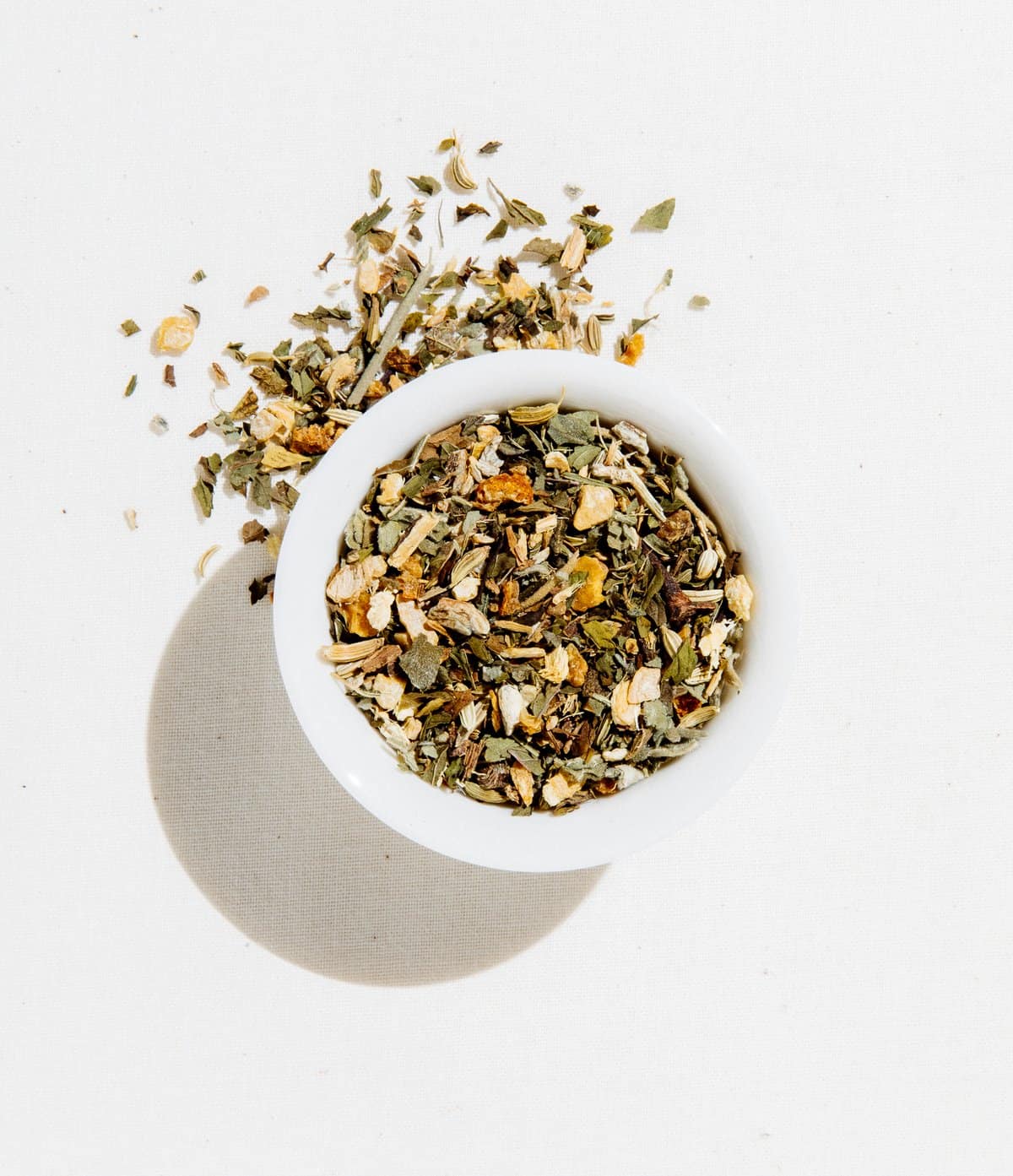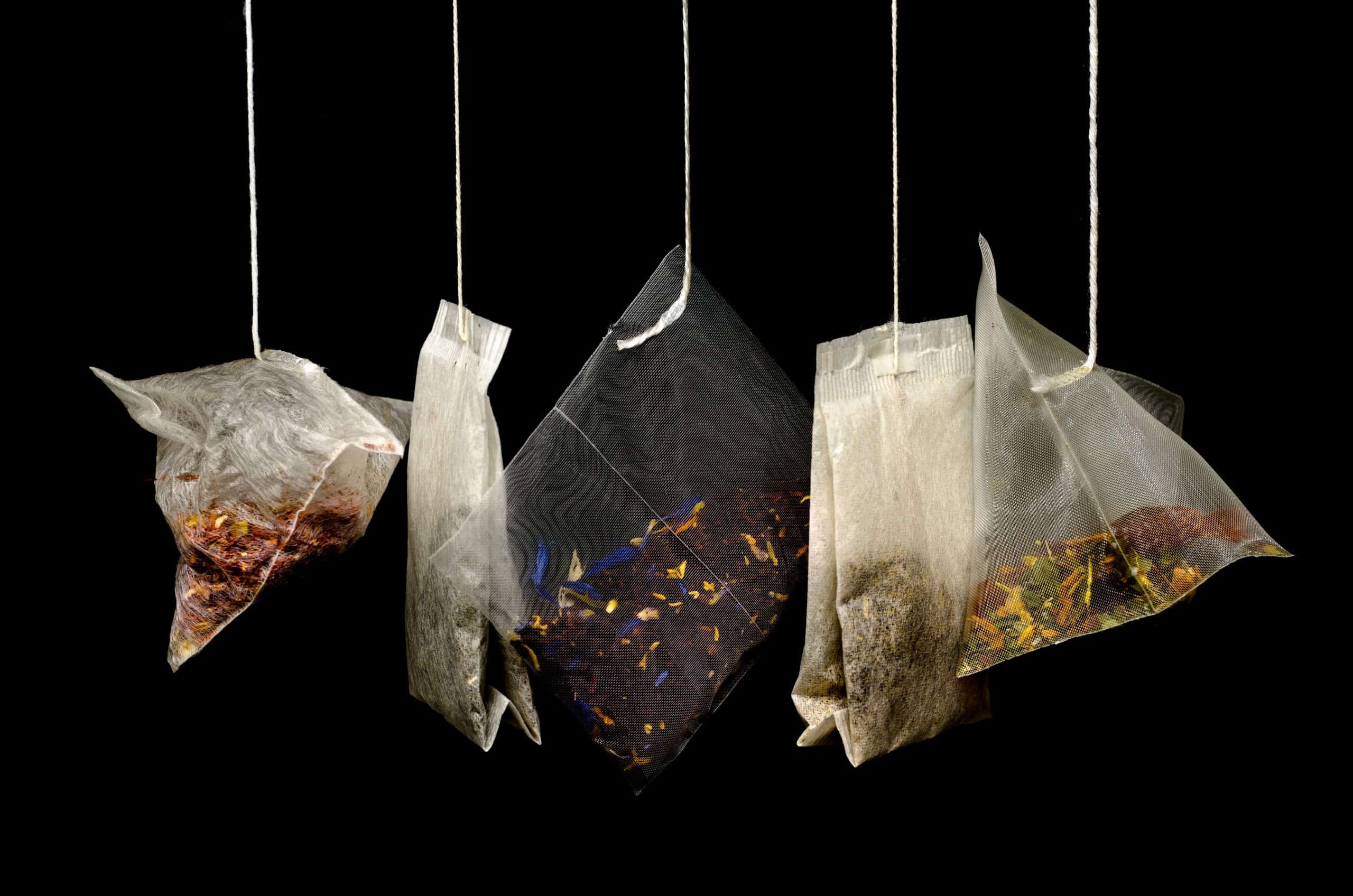When I was younger and got a sore throat, there were only a couple of things given to me:
- A tin of sugar-coated “medicine”
- A spray to numb the sore throat
- A greasy mixture to apply to my neck (and pillow) at bedtime
Some of these may have eased the effects, but none of them had any healing benefits. None of them were teas, and none were the best teas for a sore throat.
Sometimes you feel it coming on, most times it just hits you overnight. Then I learned about the healing and calming properties of herbs and teas.

Chamomile
Chamomile is a flower. Chamomile has a flavor that is earthy, light, and floral. Chamomile helps with your cold by being anti-inflammatory. Chamomile also relieves congestion and boosts the immune system. Chamomile calms and comforts the stomach, body, and soul. Chamomile is relaxing. Use Chamomile on those nights when the congestion keeps you awake. Pour a cup of Chamomile and not only sip away but breathe in its scent and enjoy the relaxing benefits.
Some other health benefits of Chamomile include:
- Calms the stomach
- Helps with sleep
- Relieves stress
- Hair Care
- Menstrual Cramps
- Fights anxiety
- Fights depression
- Helps balance hormonal issues
- Heals a leaky gut
- Anti-inflammatory
- Antioxidant
- Release Congestion
- Increases Serotonin
- Increases Melatonin
- Rheumatic pain reliever
- Lowers pain levels
- Helps maintain healthy gums and teeth
There are a few cautions with Chamomile. Refrain from using it if you are pregnant. Those who are allergic to ragweed should also avoid Chamomile.
Licorice Root
Licorice root is an adaptogen. The licorice plant is an herbaceous perennial legume native to the Middle East, southern Europe, and parts of Asia, such as India. Licorice root is one of the most widely used herbs worldwide. Licorice root is the single most used herb in Traditional Chinese Medicine today. Licorice root is harvested from the plants’ roots and underground stems. Licorice roots’ antimicrobial and antiviral properties help protect a singer’s throat.
Besides helping with colds, coughs, and sore throats, let’s look at some more benefits:
- Tonic for the adrenal glands
- Allergies
- Asthma and Hay Fever
- Stomach Ulcers
- Leaky Gut Remedy
- Heartburn / Acid reflux
- PMS
- Pain Relief
- Nausea remedy
- Gout / Arthritis
- Respiratory help
- Helps with hair loss while drinking and applying topically
You want to avoid being pregnant and can interact with certain medicines. No more than 8 oz of Licorice Tea per day.

Peppermint
Peppermint is a great help when fighting the effects of a cold. Peppermint tea brings mental clarity to the cup. The hot tea will make you sweat, and the menthol will cool you down. Peppermint is easy to grow, and the dried leaves make a perfect tea. It’s said the warming effects of peppermint help concentration.
Here are the other benefits of drinking peppermint tea:
- Sinus relief
- Migraines
- Congestion
- Headaches
- Throat / laryngitis
- Tension
- Seasickness
- Nausea / indigestion
- Stomach cramps
- Heartburn
- Gas
- Flu and cold symptoms
- Antioxidant
- Boosts a unity
- Helps with bad breath
- Digestive – helps the body move bile faster
Peppermint is known as the stomach healer. It’s a natural decongestant and helps the body move gas and bile out of the system faster. By moving the bile and gas out, it is also removing the toxins and allowing the body to heal faster.
Horehound
Horehound is a native plant from Europe and Asia. Horehound can also be grown in the United States. The plant is perennial, which means it will continue to come back year after year. The part of the plant used is the white hairy leaves and tops of the small white flowers.
Horehound is native to Europe and Asia and has been naturalized in other areas, including the US. It is a perennial, aromatic herb of the mint family. The plant has oval leaves covered with white, woolly hairs, and bears small, white flowers.
While there are two types of Horehound (black and white), black horehound has a stronger odor and is native to the Mediterranean area. White horehound is what is traditionally used as an expectorant.
Horehound is also used to aid in the following:
- Cough Relief
- Expectorant
- Sore Throats
- Colds
- Shortness of breath
- Asthma
- Swollen breathing passages
- Bronchitis
- Liver detox
- Gallbladder detox
- Constipation
- Helps with loss of appetite
- Indigestion
- Bloating
- Fluid retention
- Abdominal pain
- Spasms
- Gas
- Skin damage
- Ulcers
- Parasitic worms
- Cause sweating
- Increase urination
- Painful Menstruation
Precautions:
Do not use horehound topically. Pregnant women should also avoid horehound. If you are taking medication for diabetes, high blood pressure, or heart disease, you should consider discussing options with your primary care practitioner.

Slippery Elm
Slippery Elm is not a plant; it’s a tree. The part of the tree that is used is the inner bark. Some considerations should be taken. Slippery elm is endangered because of the way it is harvested. By taking just the inner bark, you can unintentionally kill the whole tree. Slippery elm grows in North America and its medicinal benefits were taught by the Native Americans. Other names for Slippery elm is Indian elm, moose elm, Red elm, Gray elm, and sweet elm.
The way slippery elm helps a sore throat is by a soluble fiber called mucilage. Mucilage traps and absorbs water creating a gel substance that coats the membranes. Slippery elm provides pain and inflammation relief for a short period of time.
Fun fact: the yoke of the Liberty Bell is made from Slippery Elm.
The reason you may take Slippery Elm is for:
- Sore throat
- Coughs
- Colds
- Diarrhea
- Constipation
- IBS
- Bladder infections
- Urinary tract infections
- Tapeworms
- Some STD’s
- Protects the stomach lining
- Colitis
- Diverticulitis
- Calms stomach acids
- Toothaches
- Boils
- Cold sores
- Gout
- Burns
- Wounds
Precautions:
Pregnant and breastfeeding women should not use. Chinese medicine considers slippery elm a damp herb, so avoid if you have bloating or yeast infections.
Turmeric
The active ingredient in Turmeric is Curcumin. Turmeric has over 10,000 studies on its health benefits. A couple of those studies suggest the cancer cell killer and how Turmeric outperformed chemotherapy. Turmeric is also an herb that will warm you up. Turmeric helps fight colds and flu by its the immune system.
Turmeric has numerous health benefits. I’ve listed a few below:
- Fights arthritis
- Helps the immune system
- IBS
- Alzheimer’s
- Liver damage
- Gallstones
- Depression
- Inflammation
- Diabetes
- Crowns
- Psoriasis
- Lupus
- Rheumatoid arthritis
- Chronic pain

Green Tea
While all teas come from the Camellia Sinensis plant. All teas contain their share of EGCG and L-Theanine. Green tea stands above them all to help lift the immune system, fight colds, and heal the body. Green teas are not fermented or oxidized. They have the highest levels of antioxidants among all the teas. Caffeinated tea may not be the first choice since it can stimulate anxiety. Both black and green teas contain high levels of caffeine. Green tea is credited with a long and growing list of health benefits, including:
- Heart health
- Brain health
- Blood flow
- Helps regulate blood sugar levels
- Reduces cholesterol levels
- Reduces inflammation
- Improves the memory
- Lowers blood pressure
- Helps block brain plaques
- Calming effect – causes you to slow down while you prepare and sip
While no tea or drink consumed alone will improve your life span or protect you from disease. These are benefits and not a cure.
What are green teas? Here is a list of the most common ones:
- Sencha
- Gyokuro
- Matcha
- Tencha
- Genmaicha
- Hojicha
- Bancha
- Hojicha
- Kabusecha
- Longjing
- Anti bai cha
There are many more but this will give you a look into the Green tea world.
Green tea has some amazing benefits. Add some hot water, a little honey and green tea makes that cold you are fighting a little bit better to deal with. Green tea clears your throat, soothes your throat and opens the membranes of the sinuses.
Combinations of a few of the best teas for a sore throat
Lemon Ginger Honey
Lemons are loaded with vitamin C, which is known to support the body’s natural defenses. Lemon juice is reported to decrease the strength of the cold and flu virus in the body and reduce phlegm. Lemon juice added to your tea or even a glass of water helps to build up your immune system. Lemon juice can also speed up the healing if you do catch a cold. Similar to saltwater and honey, lemons are great for sore throats because they can help break up mucus and provide pain relief.
Lemon is beneficial
- As an antiseptic
- Antirheumatic
- Prevents thickening of the arterial walls
- Strengthens veins/blood vessels
- Antibacterial
- Removes acid
- Toxifies
- Helps PH levels
- Fresh breath
- Digestion
- Energy boost
- Natural diuretic
- AIDS digestion
- Balances blood sugar
Ginger has been used for over 4,000 years by the Chinese and the Indians. Ginger is an amazing immune defense. Headed to the hospital or doctor? Drop a few drops of ginger essential oil in water for immune defense. There are drugs that cannot match the power of ginger! With gingers immune fighting properties it helps battle a cold and the cold symptoms.
Adding Ginger adds these benefits:
- Warms your body
- Improves your circulation
- Gout
- Food digestion
- Heart and stroke disease
- Nausea
- Motion sickness
- Congestion
- Stomach pain
- Relieves stress
- Builds immunity
- Fights cancer
- Alzheimers
- Cholesterol
- Arthritis
- Helps the body absorb nutrients
- Helps fight against staph and strep
There is an Indian Proverb that states: “Everything good is found in ginger”.
Adding honey to tea can also reduce the effect on your insulin and glucose levels. Honey has slightly smaller amounts of fructose. By the addition of honey, you not only get a great tasting sweeter tea but a double impact of health benefits.

Moroccan sore throat tea
Sore Throat Tea! A homemade tea for sore throats- originating from Morocco, with just three ingredients.
From Author: Sylvia Fountaine
- lemon
- ginger
- honey
This healthy, soothing tea remedy is so warming and comforting, you’ll want to drink it all winter long!
Ingredients
- 1 ½ cups boiling water
- 1 teaspoon ground ginger ( or feel free to use fresh-see notes)
- 1–2 teaspoons honey
- squeeze lemon
Instructions
- Pour hot water into a mug.
- Stir in ginger, honey, and a squeeze of lemon.
- Adjust honey and lemon to your liking. Sip slowly and repeat as needed
Summary
I remember those days with the tin case and swallowing half a box to soothe my sore, irritated throat. I also remember the nasty-tasting spray. Ewww! No one needs that when we have an entire herbal apothecary to help.
No more sprays and no more sugar-filled drops to help. Pick an herb and add some honey if you like. Sit back and relax with a soothing cup of tea, herb, or both!

